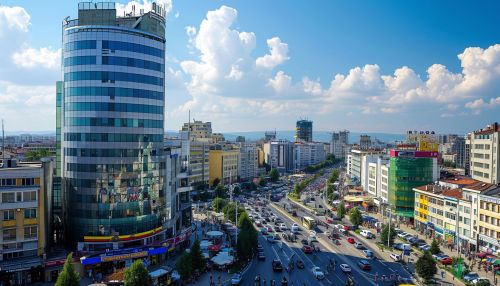Economy of Bulgaria
Overview
The Bulgarian economy is an industrialized, upper-middle income market economy, characterized by a well-educated and skilled workforce, diversified industrial base, and a competitive private sector. The country's strategic geographic location, membership in the EU, and strong fundamentals have contributed to its economic growth and stability.
History
The Bulgarian economy has undergone significant transformations since the country's transition from a centrally planned economy to a market-based one in the late 1980s. The process of privatization was initiated in the early 1990s, leading to the emergence of a dynamic private sector. The country's accession to the EU in 2007 marked a significant milestone in its economic development.
Economic Sectors
Agriculture
Agriculture plays a significant role in the Bulgarian economy, contributing to about 4.2% of the country's GDP in 2019. The sector is characterized by a mix of small and large-scale farming, with the production of grains, oilseeds, vegetables, and fruits being the main activities.
Industry
The industrial sector is a key pillar of the Bulgarian economy, contributing to over 30% of the country's GDP. The sector is diverse, encompassing activities such as machinery and equipment manufacturing, chemical production, metallurgy, and food processing.
Services
The services sector is the largest component of the Bulgarian economy, contributing to over 60% of the country's GDP. The sector includes activities such as retail, tourism, information technology, and financial services.
Economic Indicators
The Bulgarian economy has been on a steady growth path, with the GDP growth rate averaging around 3.5% in the past five years. The country's inflation rate has remained relatively low and stable, while the unemployment rate has been on a downward trend.
Trade
Bulgaria's economy is highly integrated with the global economy, with trade playing a crucial role. The country's main export commodities include machinery and equipment, chemicals, and food products, while its main import commodities include machinery and equipment, fuels, and raw materials.
Challenges and Outlook
Despite the significant progress made, the Bulgarian economy faces several challenges, including the need to boost productivity, enhance competitiveness, and address social disparities. The outlook for the Bulgarian economy remains positive, with continued growth expected in the medium term.


